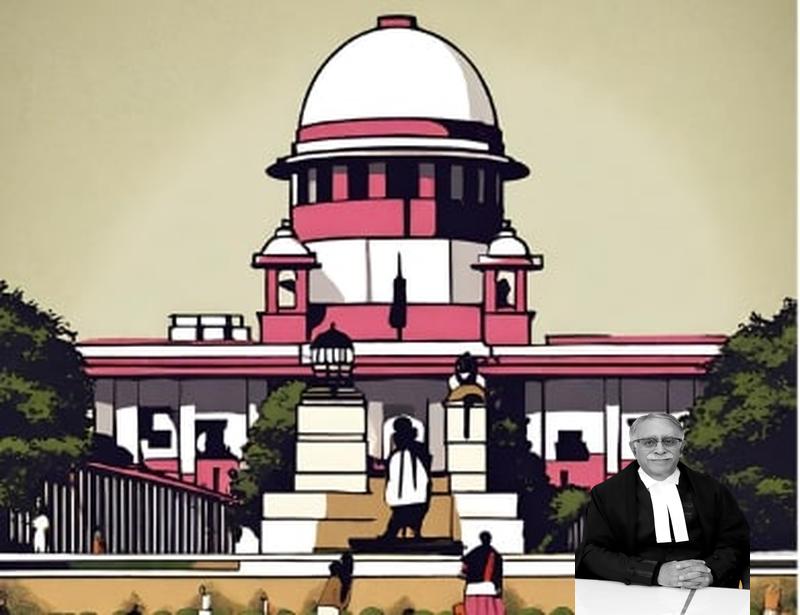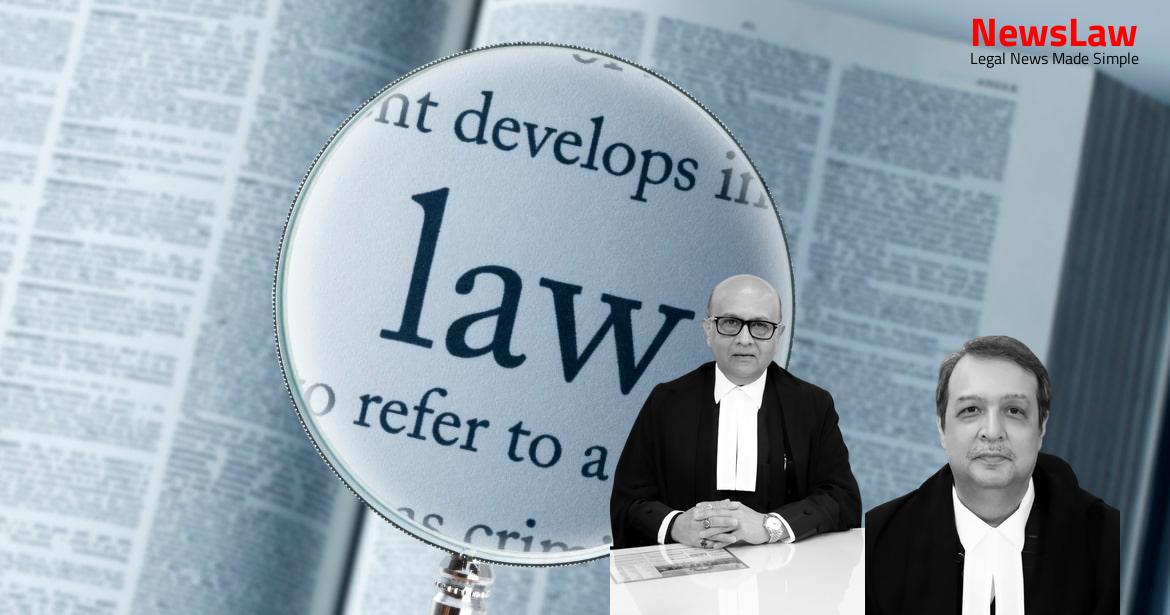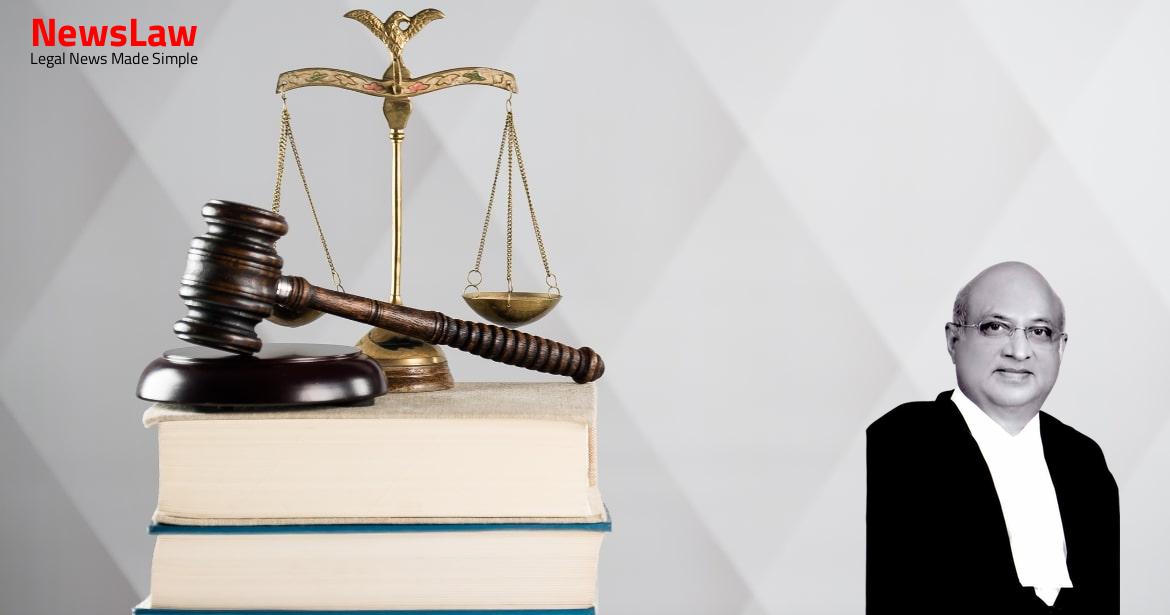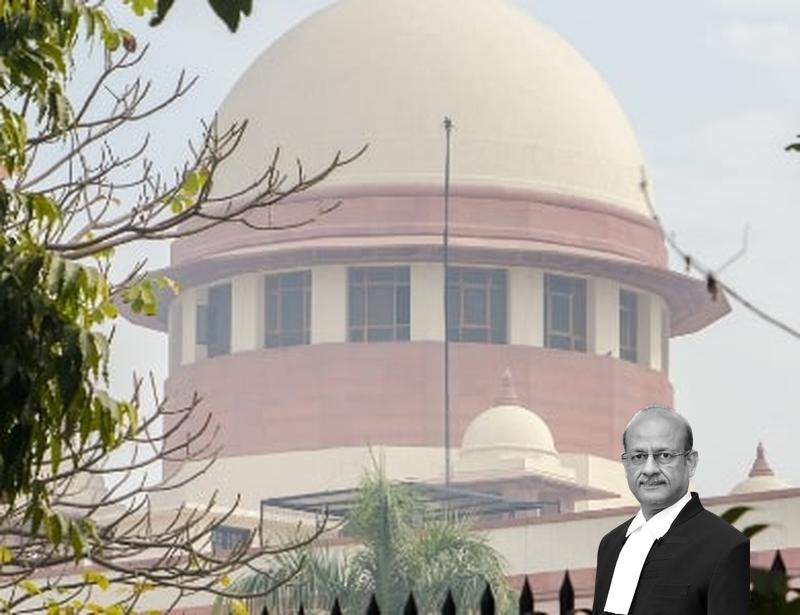This appeal assails a judgement and order passed by the High Court of Kerala dated 5 August, 2009 in Second Appeal No.740 of 1995 by which the findings returned in the First Appeal dated 3 April, 1995, by the District Judge, Thodupuzha, in Appeal Suit No 3 of 1991 were overturned and the land, subject matter of dispute, was stated to be 2 rightfully belonging to the Respondents herein, namely Joseph, by virtue of the principle of adverse possession. The Court of the Munsiff allowed the suit on 31 July 1987 and on remand, vide order dated 16 December, 1989 from an appeal filed by the State, on the ground of the non-opportunity of production of evidence as also cross-examination of the witnesses for the State, confirmed its original decree with a judgement and order dated 21 July 1990.
The same was also hit by the Proviso to Section 20 which permits such suits to be filed within one year of the date of notice. Furthermore, it was observed that the plaintiffs could not adduce any evidence to prove their possession of the disputed property for more than the statutory period of 30 years.
The learned Court below in its judgement dated 5 August, 2009 examined the decisions that led to the appeal before it and held that the lower Appellate Court’s approach stating that the suit was barred by virtue of the Act was not a good law, as the suit filed by the respondents herein was a suit for declaration of perfected title by virtue of adverse possession and not, a challenge against the notice issued by the Tahsildar. One, whether the Judgement impugned, arising out of Second Appeal meets the established criteria for Second Appeal or not?; and two, whether the respondents herein are entitled to the relief of adverse possession or is the claim so made, barred by the Kerala Land Conservancy Act, 1957? The phrase “substantial question of law”, as occurring in the amended Section 100 is not defined in the Code. To be a question of law “involving in the case” there must be first 9 a foundation for it laid in the pleadings and the question should emerge from the sustainable findings of fact arrived at by court of facts and it must be necessary to decide that question of law for a just and proper decision of the case.
This jurisdiction is exercisable only when the Court is convinced that the dispute at hand involves a substantial question of law, and proceeding under this jurisdiction sans framing questions of such nature renders the proceedings to be 10 “patently illegal.” The limitation on the exercise of power by the High Court in the Second Appeal interfering with the judgment of the First Appellate Court is premised on high public policy. It is contended by the State that a question of adverse possession does not arise, on two grounds – one, that the land is undisputedly Government land and two, that the respondents had possession of such land only for a period of 15 years which is less than required period of 30 years, after which adverse possession could be claimed against the State. Further, it is submitted that Section 20 of the Act bars any suit or other legal proceedings against the Government in respect of any action taken by it under this Act in respect of unauthorised occupation of land, and, since the notice which initiated the present proceedings under the instant act, the proceedings that it gave rise to, were barred by law. A reading of the provision barring the jurisdiction of civil suits in respect of proceedings initiated under the act, reveals the following ingredients for such a bar to apply : i) no suit in any Civil Court; ii) in respect of any order under this Act; iii) the only ground upon which such a suit would be entertained is if the notice issued is in regards of property that does not belong to the Government; 13) the entertainment of a suit under the exception described in point No.(iii) is also circumscribed by the time limit of one year from the date of cause of action. The recourse to the law that was taken, was in fact a suit for declaration before the Civil Court filed on 14 April, 1983 seeking a permanent injunction against any proceedings in respect of eviction and also possession and title of the land in question. After a perusal and consideration of various judgements rendered by this Court, the following principles can be observed : 21.1 Possession must be open, clear, continuous and hostile to the claim or possession of the other party; all three classic requirements must coexist- nec vi, i.e., adequate in continuity; nec clam, i.e., adequate in publicity; and nec 15 precario, i.e., adverse to a competitor, in denial of title and knowledge; (a)
of India (two- Judge Bench) it was held:- “
It is a well-settled principle that a party claiming adverse possession must prove that his possession is 16 “ nec vi, nec clam, nec precario ”, that is, peaceful, open and continuous. To substantiate a plea of adverse possession, the character of the possession must be adequate in continuity and in the public because the possession has to be to the knowledge of the true owner in order for it to be adverse. A possession of a co-owner or of a licensee or of an agent or a permissive possession to become adverse must be established by cogent and convincing evidence to show hostile animus and possession adverse to the knowledge of real owner.
It is possible that the licensor may not file an action for the purpose of recovering possession of the premises from the licensee after terminating his licence but that by itself cannot enable the licensee to claim title by adverse possession. Claim by adverse possession has two elements: ( 1 ) the possession of the defendant should become adverse to the plaintiff; and ( 2 ) the defendant must continue to remain in possession for a period of 12 years thereafter. The person who claims adverse possession is required to establish the date on which he came in possession, nature of possession, the factum of possession, knowledge to the true owner, duration of possession and that possession was open and undisturbed…” (Emphasis supplied) 20 Referring to the above judgement Subha Rao (supra) this Court has reiterated the cardinality of the presence of Animus possidendi in a case concerning adverse possession in Brijesh Kumar & Anr. However, the position was changed later by the decision of this Hon’ble Court in the case of Ravinder Kaur (supra) had held that – “…Title or interest is acquired it can be used as a sword by the plaintiff as well as a shield by the defendant within ken of Article 65 of the Act and any person who has perfected title by way of adverse possession, can file a suit for restoration of possession in case of dispossession…” 21 The position in Ravinder Kaur (supra) was followed in Narasamma & Ors. Satyaprakash (two-Judge Bench) this Court held : “…Mere passing of an order of ejectment against a person claiming to be in adverse possession neither causes his dispossession nor discontinuation of his possession which alone breaks the continuity of possession.” 7 When the land subject of proceedings wherein adverse possession has been claimed, belongs to the Government, the Court is duty-bound to act with greater seriousness, effectiveness, care and circumspection as it may lead to Destruction of a right/title of the State to immovable property. Saravanabava (two-Judge Bench) : “…A plea not properly raised in the pleadings or in issues at the stage of the trial, would not be permitted to be raised for the first time at the stage of appeal…” 23 It has also been held in the case of State of Uttrakhand v. The reason being that a person whose possession can be referred to a lawful title will not be permitted to show that his possession was hostile to another’s title. Therefore, a person who enters into possession having a lawful title, cannot divest another of that title by pretending that he had no title at all.” Thereby the plea of adverse possession is not available to the appellant.” The Court in Uttam Chand (supra) has reiterated this principle of adverse possession.
In terms of Articles 142 and 144 of the Limitation Act, 1908, the burden of proof was on the plaintiff to show within 12 years from the date of institution of the suit that he had title and possession of the land, whereas in terms of Articles 64 and 65 of the Limitation Act, 1963, the legal position has underwent complete change insofar as the onus is concerned : once a party proves its title, the onus of proof would be on the other party to prove claims of title by adverse possession….” The Court reiterated this principle in the case of Janata Dal Party v. So far as the question of perfection of title by adverse possession and that too in respect of public property is concerned, the question requires to be considered more seriously and effectively for the reason that it ultimately involves destruction of right/title of the State to immovable property and conferring upon a third-party encroacher title where he had none.
Also Read: https://newslaw.in/supreme-court/extension-of-benefit-of-doubt-in-criminal-convictions/
Lakshmi Reddy
[AIR 1957 SC 314 : 1957 SCR 195] adverted to the ordinary classical requirement — that it should be nec vi, nec clam, nec precario — that is the possession required must be adequate in continuity, in publicity and in extent to show that it is possession adverse to the competitor.
Balwant [(1995) 2 SCC 543 : AIR 1995 SC 895] it was observed that a claim of adverse possession being a hostile assertion involving expressly or impliedly in denial of title of the true owner, the burden is always on the person who asserts such a claim to prove by clear and unequivocal evidence that his possession was hostile to the real owner and in deciding such claim, the courts must 27 have regard to animus of the person doing those acts.” (Emphasis supplied) 24.
A perusal of such evidence also shows no decisive statements being made and instead, on the basis of the estimated age of trees on such land, is the length of possession of the respondents being calculated. In view of this uncontroverted position, whether the standard of proof as held by this Court in Harphool Singh (supra) in no uncertain terms – “When the property was a vacant land before the alleged construction was put up, to show open and hostile possession which could alone in law constitute adverse to the State, in this case, some concrete details of the nature of occupation with proper proof thereof would be absolutely necessary and mere vague assertions cannot by themselves be a substitute for such concrete proof required of open and hostile possession.”
Also Read: https://newslaw.in/supreme-court/vicarious-liability-under-section-34-of-ipc/
(Emphasis supplied) cannot be termed as met.
Case Title: GOVT. OF KERALA Vs. JOSEPH (2023 INSC 693)
Case Number: C.A. No.-003142-003142 / 2010



